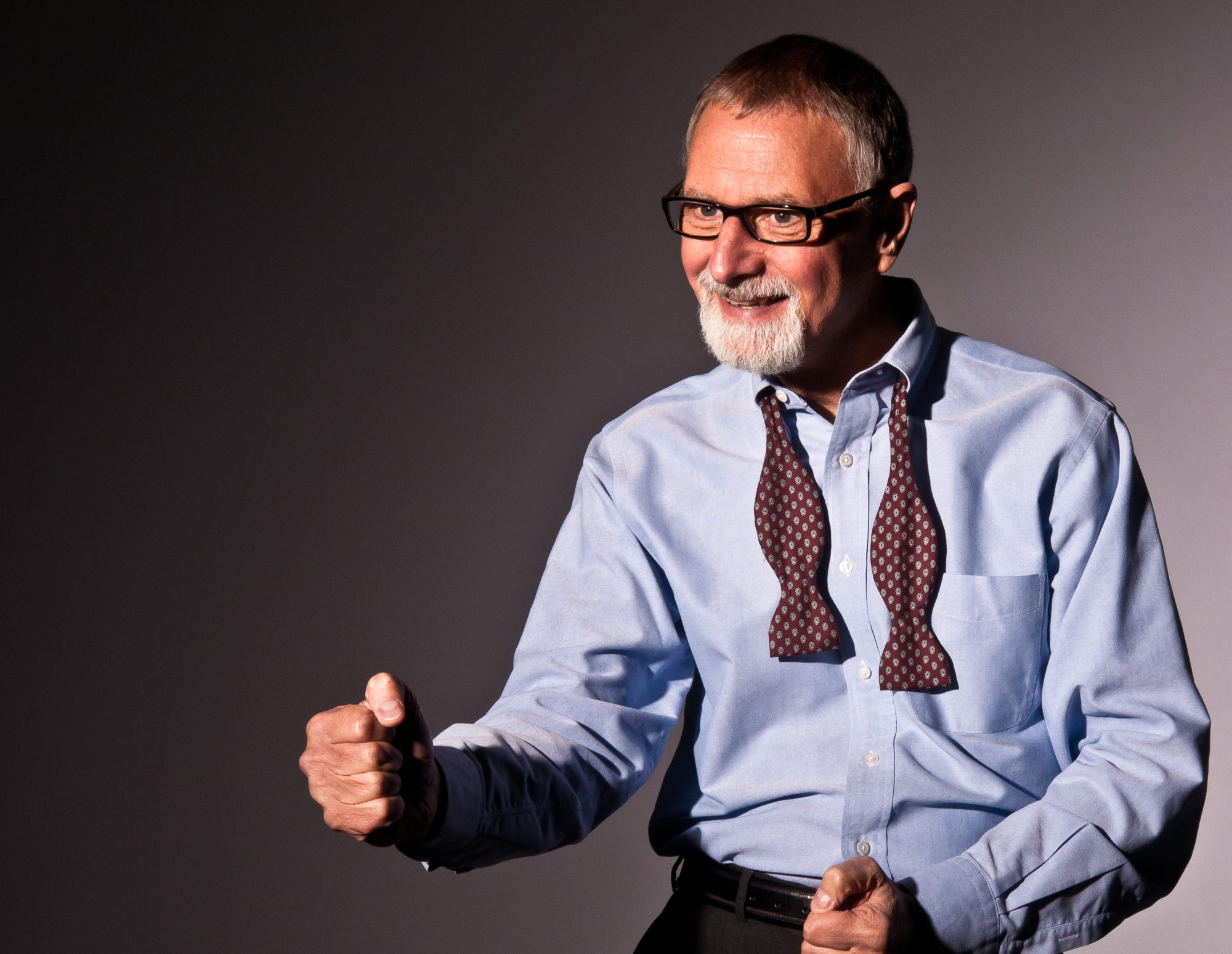Michael Lotti interviewed me for this fine article about the need to apply age-old ethics to the new social contexts created by digital communications technologies. You can find out more online about Mr. Lotti at the publisher’s (Effect Magazine, LarsonAllen) website. Kudos to LarsonAllen for addressing ethics on behalf of society.
Ethics and the Information Age
by Michael Lotti
The information age has given us more than cell phones and emails. It has also dumped a bunch of new ethical dilemmas on us. A few thinkers eagerly look into an ever-more-electronic future as they ponder the rapid development of information technology. For them, the question is not about the right or wrong use of the Internet or a Facebook account, but how these things are paving the way for the next evolutionary step of the human species.
Luciano Floridi, a philosopher at the University of Hertfordshire in England who specializes in information theory, thinks that developments in information technology are ushering in an age where humans will develop “a new ecological approach to the whole of reality,” which will include the recognition that information systems have rights.
Arthur Saniotis, an anthropologist at the University of Adelaide in Australia, looks forward to the day when there will be information technologies that “optimize human biology” and deliver “friendships with imaginative entities,” along with the ability to download a brain onto a hard drive.
If there’s an ethical imperative for such thinkers, it seems to be this: keep developing the technology so that the human species can continue to improve.
Nothing new
Besides being wildly speculative, such views make it seem as if the everyday ethical dilemmas of the information age are merely annoying speed bumps on the evolutionary highway.
For many, running into new ethical problems may be as common as answering their email messages. However, while the ethical dilemmas of the information age are very real, they pose no substantially new challenges for the people who face them.
Information technology has changed just about everything in our lives—the way we shop, educate, follow politics, and even carry on romances. We face a whole new landscape that has been radically altered by cell phones, satellites, and the Internet. But while we have new ethical problems, we don’t have new ethics. The categories we use to identify, evaluate, and solve moral dilemmas haven’t changed.
Why shouldn’t you take a call on your cell phone in the middle of an important business meeting? Because that would be unfairly taking away valuable time from your employer and co-workers. Why should businesses take significant measures to protect the electronically stored information of their customers? Because it would be a violation of trust not to do so. Why shouldn’t you text people in the middle of a family dinner or business lunch? Because that’s impolite. What’s troubling about pretending to be someone else in an online chatroom? That’s a form of lying.
Lying, impoliteness, trust, and fairness, along with concepts such as justice, self control, respect, generosity, loyalty, and many others, are part of the human fabric. Even for Plato and Aristotle and other long-dead thinkers, these terms had no discernible origin.
So when we need to answer a new ethical question, we don’t really need to invent new categories, because the familiar terms apply.
Big changes—especially big technological changes—usually outpace ethical reflection, but basic ethical sensibilities gradually catch up. The information revolution is not a revolution (or evolution) in creativity or consciousness or awareness, even if it has changed our lives an awful lot. It’s a bunch of new tools that, like the factories, telegraphs, and steam engines of the industrial revolution, can be used justly or unjustly, to spread truth or lies, or to find much-needed information or gratify the worst appetites.
The challenge of the medium
But even if Saniotis’s scenarios of “optimized human biology” are farfetched, can’t information technology actually change a person’s mind or “consciousness” for the worse? And can you tackle such a problem with familiar ethical terminology?
Quentin J. Schultze, the author of Habits of the High-Tech Heart (Eerdmans, 2002), is not against the innovations of the information age, but thinks we “should be just as concerned about the kinds of persons we are becoming as we are with being able to send messages quickly. In fact, our technologies will reflect our weaknesses as human beings if we don’t address our weaknesses up front.”
Consider the following experience a friend shared with me. He noticed that his 15-year-old daughter’s social habits changed significantly about six months after she got a cell phone and a Facebook account. She didn’t gossip, lie, cheat, or do anything that would be called unethical with her new tools. She texted people constantly and had lots of less-than-a-minute conversations on her phone, but complained about not having any close friends. As my friend put it, “She was alone in a crowded room.” Schultze would say, information technology, despite giving her dozens of new ways to communicate, actually served to amplify her normal sense of teen isolation. It hadn’t done anything to bridge the gap between communicating and connecting.
“… our technologies will reflect our weaknesses as human beings if we don’t address our weaknesses up front.” —Quentin J. Schultze
Marshall McLuhan, a professor from the University of Toronto who pioneered the field of communication studies in the 1960s and ’70s, articulated the problem this way: a medium of communication does not just deliver a message, it is the message. It shapes the person who uses it, and not always for the better. Television news is the classic example. On the surface, it communicates information about events, politics, weather, and sports. At a deeper level, it communicates a way of looking at the world—namely, that it is a bunch of unconnected events, political sound bites, weather radar, and sports scores that can be easily digested in 22 minutes, with 8 minutes of commercials designed to mold a consumer’s mind and motivate a customer. At first glance, it’s hard to say that tweets, text messages, and emails, along with the ever-present advertising on the Web, won’t alter mental habits in a similar way.
Schultze, for example, says that increased social isolation and attention disorders are predictable byproducts of the use of modern information technologies. Ron Greene, an associate professor of communications at the University of Minnesota, adds another worry: “Modern information technology intensifies fragmentation of community,” he says. “It produces an echo chamber effect as folks increasingly only communicate with those with like-minded prejudices.” Greene also thinks the easy access to information is leading students to think they are educated simply because they have accumulated a lot of data.
So can the old ethical tools possibly address these new problems? Or are these new problems at all?
For the past six decades, parents have limited their children’s time in front of the television. Why? Because they instinctively knew that kids who watch a lot of television don’t easily develop long-term concentration skills, and they, being responsible parents, wanted to do what was best for their children. And before the age of television, parents restricted time in front of the radio. And before the age of radio, books and movies were screened. Even Plato, way back in 380 BC, was critical of the stories, music, and plays that entranced so many in his day. In other words, people of every age—especially parents—have felt an ethical obligation to protect and guide children, and that meant managing the media of the day.
Information technology can disrupt or damage things that we value, like academic integrity and a workplace without unnecessary distractions, so we try to figure out how to productively combine it with those things instead of abandoning it. In other words, we’re taking a very old ethical concern—and applying it to a new situation.
And for what it’s worth, people are gradually figuring it all out. For every person checking into an Internet addiction center, there are millions who use the Web to find valuable information, send pictures to grandparents, manage finances, and connect with business contacts. Max More, an internationally acclaimed futurist who has written extensively about ethics in the information age, likens our time to Europe in the decade after the invention of the printing press. “I’m sure there were people worrying that with books so easily available, everyone would stop having conversations,” says More. “But people obviously adjusted.”
The deepest choice
Maybe it’s too simple to say that people are asking the questions that they have always asked as they navigate the ethical waters of the information age. Maybe it’s too easy to say that many things have changed—the boundaries between work and home life, the ways our private information can be misused, the sense of always needing to be plugged in. But the distinction between right and wrong has not changed.
If it’s not terribly complicated, why is there so much obvious misuse of information technology? How are we to make sense of humans, with their innate ethical sense and their notably unethical behavior? Plato writes that ethical concern about anything is rooted in two basic assumptions, so basic they can be hard to notice. The first is the conviction that, even if we don’t know all the details, there is a better and a worse way to live, a right and a wrong, actions that are good and actions that are evil. The second is the conviction that our lives ought to be shaped by what we find to be good, right, and beneficial to ourselves and our community.
Aristotle points out that these basic convictions are not automatically or continually held by people. He doubted they could arise in people who had been poorly raised and asserted that young people are too driven by passions to benefit from discussions about ethics. Likewise, Plato puts foes in his essays who shrug off ethical concepts like “justice” and “honesty” as inapplicable or even meaningless in the “real world.” Plato and Aristotle say, in other words, that people must choose to be ethical amidst the ease of being unreflective. They have to care about being good to even recognize an ethical dilemma, and lots of people don’t care (or only care in fits and spurts). So we have—as Plato and Aristotle had—a society with lots of good, bad, and thoughtless behavior thrown together.
If you do care about being good, though, the news from Plato and Aristotle is positive. Your concern for ethical behavior will certainly make you more prone to act well, and by acting well, you will, according to Aristotle in particular, “lead the life that is by nature pleasant.” You may not have all the answers to the ethical dilemmas of the information age, but you do have all the tools you need to figure them out.
Please subscribe to my email list for free excerpts from my current and forthcoming books. Thanks.

